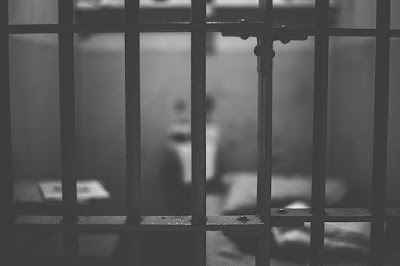There goes the first week of January 2021. Back when life was normal (as in, this time last year) the first week of January for me would be a time for tackling writing projects with the renewed vigour born of a rest over Christmas and perhaps one or two resolutions. My writing resolutions normally involved things like: I will unfailingly set aside two evenings and one afternoon each week to dedicate to writing fiction or poetry or whatever I'm inspired to write. Or: I will complete project X this year and start on project Y. Or something similar. More often than not, by February I would have forgotten these or been distracted by a new project or a fresh idea.
This year, no resolutions for writing. Blame the pandemic, blame my age, blame my hormones, blame my steadily depleting bank account. Heck, blame Brexit and the riot in Washington last week. But I know the reality is that that I need to take some time to stop. A pause in which to reflect on last year, on this year, on today and on tomorrow.
I am one of those writers who has not been remotely creative in lockdown. I did put together an e-book of short stories at Christmas to raise money for charity, but they were mainly written some time ago. Unashamed promotion, so here's the link:
All They Want for Christmas by Jackie Anderson
But other than this and 'work' writing, there was nothing. Not a squeak of nib on paper that left other than a meaningless scrawl.
There's something grim and insidious, nasty, to tell the truth, about this odd pressure to be creative, to do something worthwhile with this extra time that we apparently all have. Well, try telling a nurse doing double shifts at the CCU, that he's got more time. Or a police officer, or a firefighter, or a road sweeper or a rubbish collector or the supermarket shelf-stacker. And yet the TV and radio and social media are blurting away ideas and examples of all the creative things people are doing in lockdown, which have a tendency to make you feel a bit inadequate if you simply can't get anything remotely meaningful to hang together into a paragraph let alone complete a poem or story.
So this post is being written to declare, loud and proud that actually, getting through a pandemic like this is tough and if you haven't got the energy left for your creative project or learning a new skill, that's ok. If you're getting through each day, then that's enough. Thank you Joe Wicks, the exercises are great for some, and thank you for those musicians and actors laying on online performances, and thank you those writers who pump out prose and poetry brilliantly and publish work precisely because they have to stay at home. I mean it. The creatives have kept most of us ticking over reasonably well. We have had entertainment, and we have learned new things.
But, if like me, your work (real work that puts bread and butter on the kitchen table) did not slow down, just shifted location, or you stepped up a gear caring for locked down family members, or you were simply too anxious to concentrate, you are not alone. And if your feelings about the pandemic - fears, anxiety, impatience, even incredulity - left your pen dry, you are definitely not alone. I have been dry as a bone since the start of last year, and I was greatly relieved to surf the net and found many writers saying similar.
If I write, it will be because I have to write for work (somehow I never class my feature writing as writing, probably because I want to be a fiction writer), or I write some journal entries, or letters to family and friends, or because finally the creative spark has been relit. I might well add posts to this blog, just to keep the fingers remembering how to type.
I do know that some Gibraltar Writers are busy working on a number of projects, and some plan to start new writing projects this year. Others are less sure of their plans but plan to write more. Which pleases me hugely, and hopefully they will provide lots of reading material: one of the things I want to do this year, is read as much Gibraltar writing as I get time to read. I hope we can get the library open soon!
What will you be writing in 2021?



























